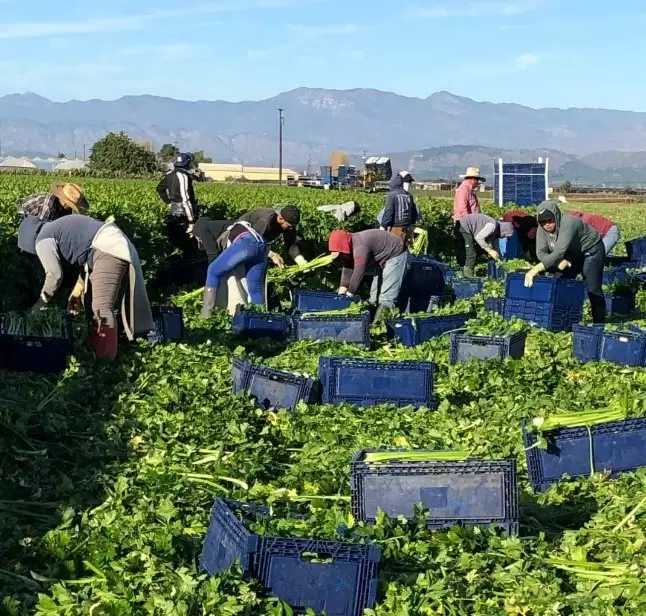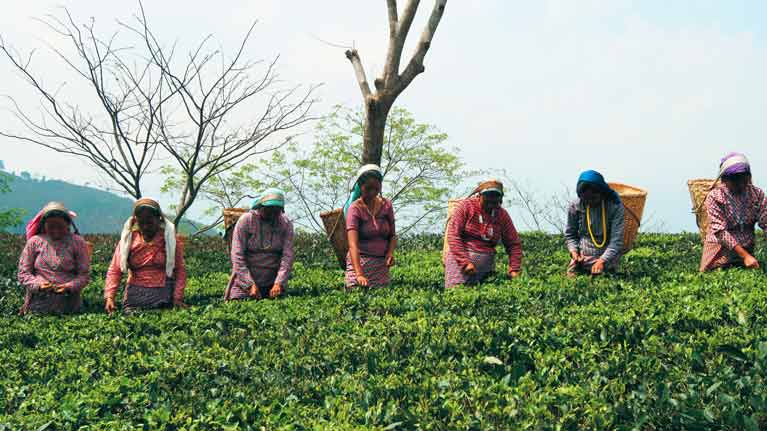Defending agricultural workers, in a pandemic and beyond


As borders close one after another, looming labour shortages in agriculture and the particularly vulnerable situation of agricultural workers everywhere spotlight the precarious foundations of food security and a major, but unexamined, challenge to containing the spread of the virus. To maintain food supplies while defending against the spread of the virus, governments and supra-national authorities need to take immediate action to protect the living and working conditions of the agricultural workers whose labour feeds the world.
Over a billion people around the world are engaged in agriculture.Some 40% percent of these are employed as waged workers: the women and men working on farms, plantations, orchards, and greenhouses, in dairy and livestock production. In many parts of the world, they are largely invisible, but global society rests on their backs.
Agricultural workers suffer from high levels of extreme poverty, precariousness, casualization and debilitating levels of work-related illness, injury and disease. Only 5% of workers in agriculture have any access to a labour inspection system or legal protection of their health and safety rights. In many countries, including some of the wealthiest, public authorities are absent from the fields; criminal gangs and traffickers lay down the law. Most workers in agriculture lack access to potable water and decent sanitation. Many are migrants, moving across borders and from crop to crop. Working on plantations or moving from farm to farm, they live where they work, and their crowded, unhealthy, indecent living and working conditions are a giant petri dish for propagating infectious disease.
A global health emergency has now brought home the basic truth that “Without these workers, everything ceases to exist”, as the vice-president of the United States’ Apple Association recently stated. U.S. growers are scrambling to ensure the supply of farmworkers following the closure of the border with Mexico. But who will ensure farmworkers’ health and safety whose work is needed now, even as the virus spreads?
Targeted measures to protect the health of agricultural workers are needed to protect the general population and ensure the flow of food supplies. A potential crisis in food production will not be addressed if it is treated simply as a temporary cash flow or labour supply bottleneck.
A March 19 letter from European Union Agricultural Commissioner Janusz Wojciechowski to EU agriculture ministers notes that “lockdown in many Member States will cause extreme hardship in many sectors, including the agri-food sector” and calls for action “to support the efforts of our farmers, agri-food industry and retailers to continue to secure the food supply chain.” Does ‘extreme hardship’ apply to vulnerable, exploited workers? Do these ‘actions’ include ensuring supplies of soap, potable water, disinfectant, protective equipment and medical services for workers? Income support? Meals and housing for workers that enable social distancing and quarantine? Sick pay? Relief from the depredations of criminal gangs?
In the United States, the Department of Homeland Security, an agency with no experience in the matter, has announced that “Promoting the ability of our workers within the food and agriculture industry to continue to work during periods of community restrictions, social distances, and closure orders, among others, is crucial to community continuity and community resilience.” Guidance is executed by the individual states. The state of Pennsylvania’s Department of Agriculture has declared, promisingly, that “Agriculture’s role is unquestionable: access to food is a right; we need local agriculture now more than ever.” Yet their specific “guidance” merely states that workers should be provided information on sanitation measures and avoid crowds; sick workers should be sent home. But workers need more than information; they need soap, water, disinfectant and protective equipment. To avoid crowds, they need appropriate transport, housing and provision for meals. And where is ‘home’ for migrants?
As the virus spreads, there is no indication that countries are addressing the scope and the root causes of the potential crisis in the food system and preparing accordingly. International bodies are performing no better. The United Nations’ Food and Agriculture Organization (FAO) has produced a set of questions and answers on the COVID-19’s impact on food and agriculture, one of which asks: “Whose food security and livelihoods are most at risk due to the pandemic?” Workers are not mentioned in the answer. A March 18 ILO briefing (Covid-19 and World of Work: Impacts and Responses) has nothing to say about the specific impact on agricultural workers and the implications for food security.
Substantial, open-ended funding from national governments and international institutions must be made immediately available to ensure adequate protection and safe work for agricultural workers as an elementary measure for protecting public health and food security. Strict measures, enforced at the workplace, are needed to guard against wage theft and an intensification of work. Where labour shortages exist, recruitment of additional labour, with all workers guaranteed a living wage established through agreement with unions, should be quickly organized under democratic oversight. Provision of potable water and adequate hygiene must be given immediate priority. Safe transport and housing need to be quickly organized to enable continuity of production and distribution while protecting the health of workers and the wider community. Governments will need to step in where employers are unwilling or unable.
Stranded migrants in these circumstances are an asset. Now is the time to draw on the knowledge and experience of workers for too long considered ‘unskilled’ and disposable. Agricultural workers and their unions need to play an integral role, at local, national and international level, in the planning and execution of emergency measures, including the expansion of local production.

It also requires measures “to ensure that temporary and seasonal workers receive the same safety and health protection as that accorded to comparable permanent workers in agriculture”, and calls for agricultural workers’ inclusion in social security and health insurance schemes comparable with those of workers in other sectors.
These rights are a guide to action, in the current crisis and beyond. Universal sick pay is not a ‘crisis measure’, to be rescinded as soon as the transmission curve flattens. The pandemic has exposed the folly of shredding public health care to feed investor appetites. We now confront the frailty of a food system which disposes of those who feed us. Massive investment in protecting the health and safety of agricultural workers is needed to combat the coronavirus, and that investment must continue on a permanent basis when this crisis is over.